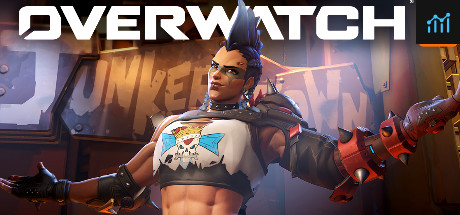Beyond The Headlines
Stay updated with the latest news and insights from around the world.
Is CS2's Overwatch System the New Keeper of Fair Play?
Discover how CS2's Overwatch System could redefine fair play in gaming. Is it the game changer we've been waiting for? Click to find out!
How Does CS2's Overwatch System Compare to Previous Titles?
The Overwatch system in CS2 introduces several enhancements that distinguish it from previous titles in the series. In comparison to earlier iterations, where players faced stark penalties for leaving matches or receiving reports, CS2 adopts a more nuanced approach. The new system emphasizes player behavior by implementing a tiered penalty structure, which allows for a better understanding of player engagement levels. This encourages players to remain in matches and fosters a healthier gaming environment. Moreover, the addition of a feedback loop enables players to learn from mistakes and improve their gameplay experience.
Furthermore, CS2 also incorporates community-driven features that weren’t present in earlier titles. One such feature is the introduction of community moderation, where seasoned players help monitor and provide feedback on player behavior. This collaborative effort not only helps maintain game integrity but also enhances players' sense of involvement in the game's community. As a result, the Overwatch system in CS2 not only offers players a fairer and more pleasant gaming experience but also aims to engage the community, encouraging them to uphold the values of sportsmanship and respect.

Counter-Strike is a popular tactical first-person shooter (FPS) game that emphasizes teamwork and strategy. Players engage in intense gunfights, where precision and quick reflexes can turn the tide of battle. For thrilling CS2 Gunfights, players must master maps and weapon mechanics to secure victory.
Is CS2's Overwatch System Effective in Promoting Fair Play?
The Overwatch System in CS2 is designed to enhance the gaming experience by promoting fair play and accountability among players. By allowing community members to report disruptive behavior, it aims to create a more positive environment. In this system, players can review reports of in-game misconduct, including cheating, toxicity, and other unfair practices. This crowdsourced approach ensures that judgment comes from fellow players, which can often lead to more accurate and fair outcomes. However, the effectiveness of this system relies significantly on the community's commitment to reporting honest instances of foul play rather than personal biases or vendettas.
Moreover, the Overwatch System includes a tiered response to offenses, encouraging players to think twice before engaging in negative behavior. For example, repeat offenders face more severe penalties, which serve as a deterrent to those who might exploit the game's mechanics or engage in unsportsmanlike conduct. The system's transparency in the reporting process is critical, as players are often keen to see the consequences of their actions and those of others. As a result, this initiative not only aims to punish bad behavior but also fosters a culture of mutual respect and fairness within the gaming community.
What Players Are Saying About CS2's Overwatch Mechanism?
Since the release of CS2, players have been vocal about its new Overwatch Mechanism. Many have praised the system for enhancing accountability, allowing players to report those who exhibit toxic behavior. A player tweeted, "The Overwatch Mechanism in CS2 is a game changer! It makes the community feel safer and encourages a more positive gaming environment." This sentiment is echoed by numerous players who believe that a robust reporting system is crucial for the longevity of any multiplayer game.
However, not all feedback has been positive. Some players have expressed concerns over potential abuse of the CS2 Overwatch Mechanism. Critics argue that innocent players might be unfairly reported, leading to unnecessary penalties. As one gamer noted, "While I appreciate the intent behind the Overwatch system, I fear it could be misused to silence players who are just having a bad game." These mixed reviews illustrate the challenges developers face in balancing player accountability with fair treatment.